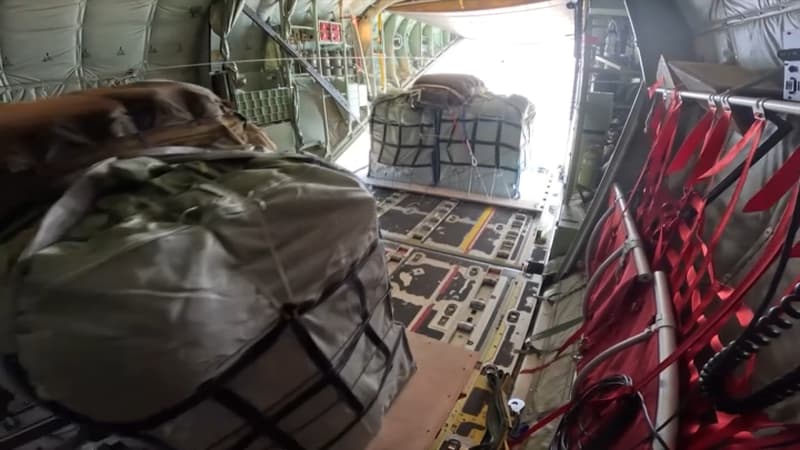The Israeli army has announced that the falls in humanitarian aid would take care of the Gaza Strip, confronted with serious shortages at night, and that it would establish humanitarian corridors to guarantee the safe step of the United Nations Food and Drug Convoys, this Saturday, July 26.
These drops led by foreign countries will resume on Saturday night “as part of the continuous efforts to allow and facilitate the entry of assistance to Gaza,” said the army, adding that the first drops would include seven flour, sugar and preserves palettes provided by international organizations.
An “immediate” recovery
Early at night, Abdallah Ben Zayed al-Nahyane, Minister of Foreign Affairs of Emiratí, had said, in X, that the United Arab Emirates were going to “take” immediately “immediately” immediately. “
“The humanitarian situation in Gaza has reached a critical and unprecedented level. The United Arab Emirates remain at the forefront of efforts destined to provide vital help to the Palestinian people. We will ensure that essential help reaches those who need it more, whether by land, air or maritime.
A general famine risk
Israel, who has been begging the Gaza Strip since the beginning of the war against Hamas on October 7, 2023, had imposed a hermetic block in the territory in early March, very relaxed at the end of May, which led to a very serious shortage of food, drugs and other basic needs.
UN and NGOs are now alarmed by an outbreak of child malnutrition and a risk of generalized famine among its more than two million inhabitants. On Saturday, the United Kingdom announced that it is preparing to leave help and evacuate “children who need medical assistance”, in collaboration with “partners like Jordan.”
A means of help criticized by NGOs
The Emirates, Jordan, France and other countries had already participated in the parachute of help in Gaza in 2024, sometimes considered dangerous and imposing a complex logistics for a limited aid volume. Many humanitarian officials had emphasized that they could not replace the delivery of land assistance.
The UN agency chief for Palestinian refugees (UNRWA), Philippe Lazzarini, estimated on Saturday that the resumption of parachutes was an “ineffective” response to subjected humanitarian disaster. “The air drops will not end the rain of ideas. They are expensive, ineffective and can even kill hungry civilians,” he said.
Source: BFM TV


